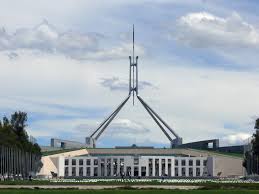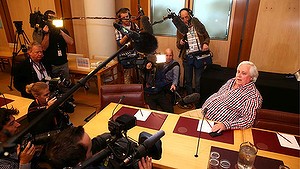This is belated, but I still think worthwhile.
Jess Hill’s cracking article in The Monthly (you can read a limited number of articles online per month without a subscription), and the recent Four Corners program on renewable energy, are required consumption for anybody interested in the history and future of electricity supply in Australia.
In short, the electricity distributors (who hold a natural monopoly over their corner of the market) predicted continued growth in electricity demand and then persuaded the energy regulators to let them increase their charges to pay for said infrastructure. This accounted for most of the growth in electricity prices, despite the nonsense about the carbon tax from the right of politics. The reasonableness of these predictions can be debated; the fact that they led to massive profits for the distributors is now clear. In the face of these increased prices, something amazing happened – absolute demand for electricity dropped substantially. Part of this can be attributed to rooftop solar, some to energy efficiency; regardless, the huge infrastructure spend has turned out to be almost completely unnecessary. Along the way, grid electricity generators have felt the squeeze between falling demand and mandated construction of renewable energy through the RET, and are now lobbying hard to prevent more renewable energy being connected to the grid.
The future is a topic for another post, but there is one point about the past and present that Hill’s excellent report hasn’t really gotten in to. Particularly in NSW and Queensland where the price increases have been greatest, the electricity distributors are state-owned, and the profits have gone to the state governments. Dividends from the distributors have filled a pretty substantial gap in those state budgets; however, they’ve done so in an extremely inefficient way. Billions of dollars has been wasted building unnecessary infrastructure so that the state governments could collect revenue from the monopoly profits. Hill’s article reports $45 billion dollars worth of infrastructure has been built nationally; in Victoria’s privately run grid, one third of the infrastructure spending went towards peak capacity augmentation, whereas in NSW and Queensland about two-thirds was spent on the same area. Based on this, my rough guess is that in those two states, at least $7-8 billion was spent on unnecessary capacity augmentation.
In a sane world, if state governments need more revenue, they would raise taxes. But because of Australia’s strange fiscal arrangements, where state governments spend a large fraction of total government revenue but only collect a fraction of it, it’s easier to whinge about the vicissitudes of the Commonwealth Grants Commission and raise this kind of hugely inefficient stealth tax.
So next time somebody mentions “vertical fiscal imbalance” and “narrow tax bases”, try not to let your eyes glaze over. It’s boring, but it’s important.


